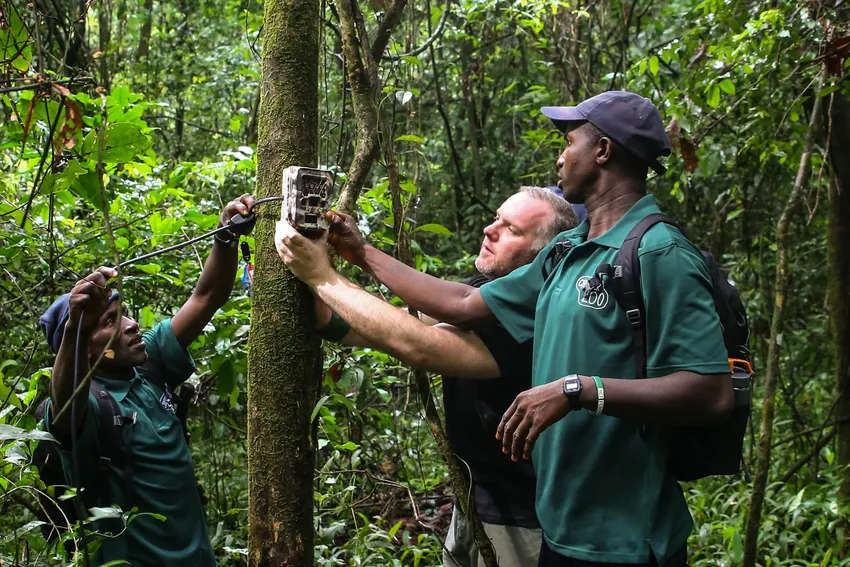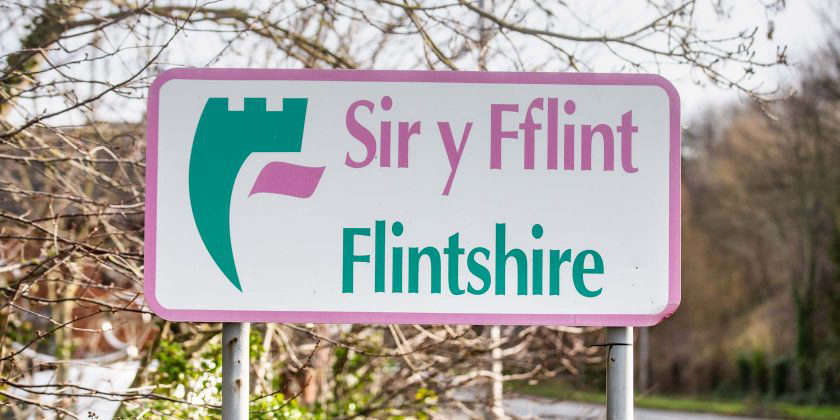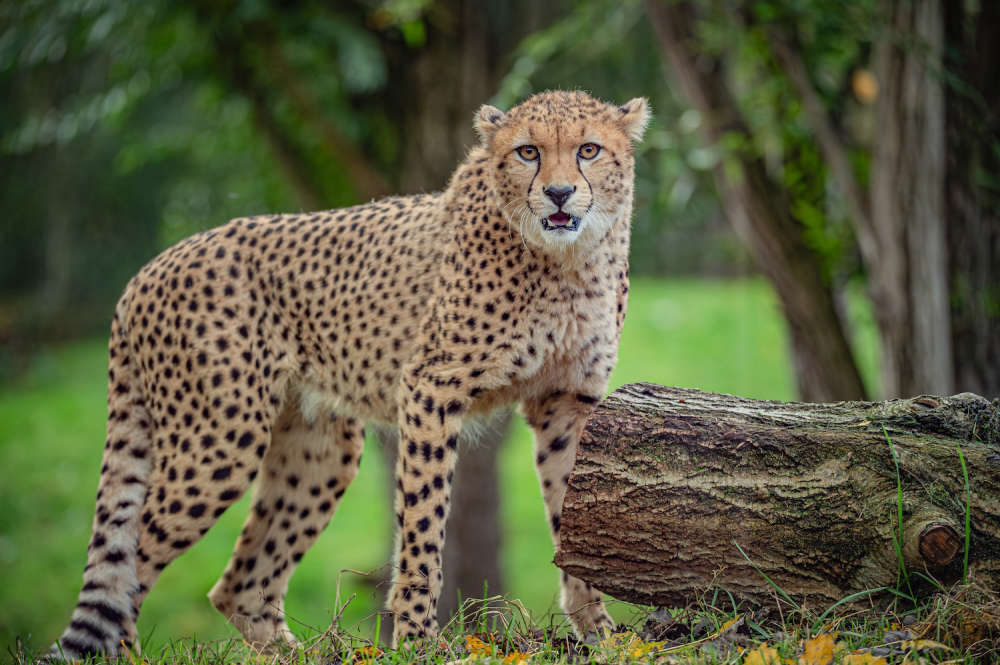
The conservation zoo is part of the Big Green Give – a national, annual campaign dedicated to helping charities which play a vital role in tackling pressing environmental issues.
The conservation zoo is part of the Big Green Give – a national, annual campaign dedicated to helping charities which play a vital role in tackling pressing environmental issues.
Every donation made to the zoo between 22 and 29 April will be doubled – making twice the impact to crucial pangolin protection.
Pangolins are the world’s only scaled mammals. Despite being little known, all eight species of pangolin are among the most threatened species on the planet.
Conservationists from the zoo have spent years trekking through remote parts of the African rainforest to lead studies on the species, on behalf of the global conservation community.
It all began with holes scratched in the ground, a few chance sightings during a camera-trapping study, and a push from passionate members of our conservation team.
Stuart Nixon, Regional Field Programme Manager for the zoo’s projects in Africa, said:
“Between 2004 and 2014, when I was studying gorillas in eastern DRC, we would occasionally come across large burrows. I was fascinated – pangolins are such interesting creatures – but our focus was on gorillas. At that time, the threats to pangolins in Africa weren’t well documented.”
Stuart joined Chester Zoo in 2015 to develop its African field programmes and was asked on his first day by Naomi Matthews, then a junior field team member:
“Are we going to have an African pangolin project?”
Chester Zoo’s conservation efforts were focused on Gashaka Gumti National Park in Nigeria, where Stuart was surveying chimpanzees. To the conservationists’ surprise, the camera trap array captured glimpses of a giant pangolin – the first time the elusive species had ever been documented in Nigeria.
Stuart said:
“That was the spark that really ignited things. If a mammal nearly 6ft long and weighing around 80lbs could go undocumented in Nigeria for so long, where else might they be?”
In 2017, the team was invited by the Uganda Wildlife Authority to carry out a pangolin census.
Stuart added:
“If I’m honest, I thought it would be a breeze. I had worked with wild okapi and eastern gorillas for the previous 15 years – both very elusive species. We started in Kibale National, where a 2012 camera trap survey had picked up many signs of pangolins. However, by the time we began our own surveys in 2018, they had all but disappeared. That survey was some of the hardest fieldwork we’ve ever done – it was a steep learning curve.”
Six months of slogging through humid rainforest, dodging forest elephants, vipers and biting ants, yielded little. In the end, just a single giant pangolin was captured on camera in the final days of the survey. If nothing else, it was a wake-up call to how threatened the species was.
The team refocused on another Ugandan site – the Ziwa Rhino Sanctuary – where rangers had reported a giant pangolin during a night patrol. For the first time in conservation history, a giant pangolin was successfully tagged to track its movements.
Naomi, now studying for a PhD on giant pangolin ecology, said:
“It was midnight when we got a sudden call. The rangers, who patrol Ziwa 24/7, had found a giant pangolin in a thicket – only the second time they’d ever seen one. I threw on clothes over my pyjamas and we were in the car within seconds.
“It was an epic and very special moment. For Stu, Sam Isoke (a Ugandan conservationists and field partner) and me, it was a real highlight. We’d studied the species for years but had never seen one in the flesh. Suddenly, there it was – this beautiful, incredible animal, lit by a bright full moon.
“She was safely held by the rangers so we could attach the GPS and radio tags securely to her huge scales. The process was a bit like that 90s trend of piercing fingernails – it didn’t hurt her, as there are no nerves in the scales. She was calm, but we could feel just how immensely strong she was – a huge ball of hard scales and coiled muscle. We named her Sungura-Mwezi, which means ‘rabbit moon’, and then released her.
"The next eight weeks provided incredibly valuable data on her movements and activity patterns before the tag came off. Giant pangolins bulldoze through everything, so following Sungura at night as well as keeping the silicone tag attached was a real challenge.”
Subsequent surveys built on what was learned at Ziwa and identified Murchison Falls National Park – one of Africa’s oldest protected areas – as an extremely important stronghold for the species.
Now, the team is using technology developed with Liverpool John Moores University’s Conservation AI team to implement real-time artificial intelligence monitoring systems. The AI software can identify pangolins in video footage in real time and recognise individuals more quickly and accurately.
On the first night of deployment, a video of a giant pangolin was captured at a Murchison Falls camera-trap location, and the AI system emailed the team within a minute of detection. This technology will be vital to locating pangolins in real time so we can learn how they interact with each other and their environment. As the systems become more advanced, they could even identify signs of injury, such as snare wounds – and potentially detect poachers, who pose a serious threat to pangolins and other wildlife.
Stuart also said:
“It’s vital that we harness this technology and expand our efforts as quickly as possible to give this species the best chance of survival in Uganda,”
“I think Chester Zoo’s commitment to giant pangolins is a wonderful thing. We need all kinds of organisations – from national governments and local communities to NGOs – involved. But zoos have a unique advantage: they’re funded by visitors and donors, so our field conservation can be long-term and focused."
You can help Chester Zoo to protect the Ugandan giant pangolin species from a multitude of threats.
From 22nd to 29th April - your donations will be doubled. If you donate £5, Chester Zoo will receive £10 - doubling your impact and helping to save this unique and endangered species from extinction.
Chester Zoo is aiming to raise over £16,000 - every penny raised will go directly to supporting pangolinconservation in Uganda.
Pledge here before April 29th to help save giant pangolins:


 Illegal vapes, tobacco and alcohol seized in trading standards operation
Illegal vapes, tobacco and alcohol seized in trading standards operation
 Man charged in relation to burglary in Chester
Man charged in relation to burglary in Chester
 Active travel and safety improvements coming to Ewloe roundabouts
Active travel and safety improvements coming to Ewloe roundabouts
 Aquanatal Classes Make Waves at Local Swim School
Aquanatal Classes Make Waves at Local Swim School
 CFC Women's Team Mid-Season Review
CFC Women's Team Mid-Season Review
 Chester and Wirral Football League - Weekend Round Up
Chester and Wirral Football League - Weekend Round Up
 Chester Zoo hits new all-time visitor record in landmark year for conservation charity
Chester Zoo hits new all-time visitor record in landmark year for conservation charity
 WILLY RUSSELL COMEDY SET TO BE STAGED AT CHESTER THEATRE
WILLY RUSSELL COMEDY SET TO BE STAGED AT CHESTER THEATRE
 Blues Match Report: Chester FC 0 - 1 Worksop Town
Blues Match Report: Chester FC 0 - 1 Worksop Town
 Blues Match Preview: Chester FC v Worksop Town
Blues Match Preview: Chester FC v Worksop Town
 Countess of Chester Hospital urges public vigilance and handwashing to help stop the spread of Norovirus
Countess of Chester Hospital urges public vigilance and handwashing to help stop the spread of Norovirus
 Cheshire Firefighter Recognised in New Year's Honours
Cheshire Firefighter Recognised in New Year's Honours
 Blues Match Report: Chester FC 2 - 0 Macclesfield FC
Blues Match Report: Chester FC 2 - 0 Macclesfield FC
 Blues Match Preview: Chester FC v Macclesfield FC
Blues Match Preview: Chester FC v Macclesfield FC
 Immigration operation conducted at Chester delivery depot
Immigration operation conducted at Chester delivery depot
Comments
Add a comment